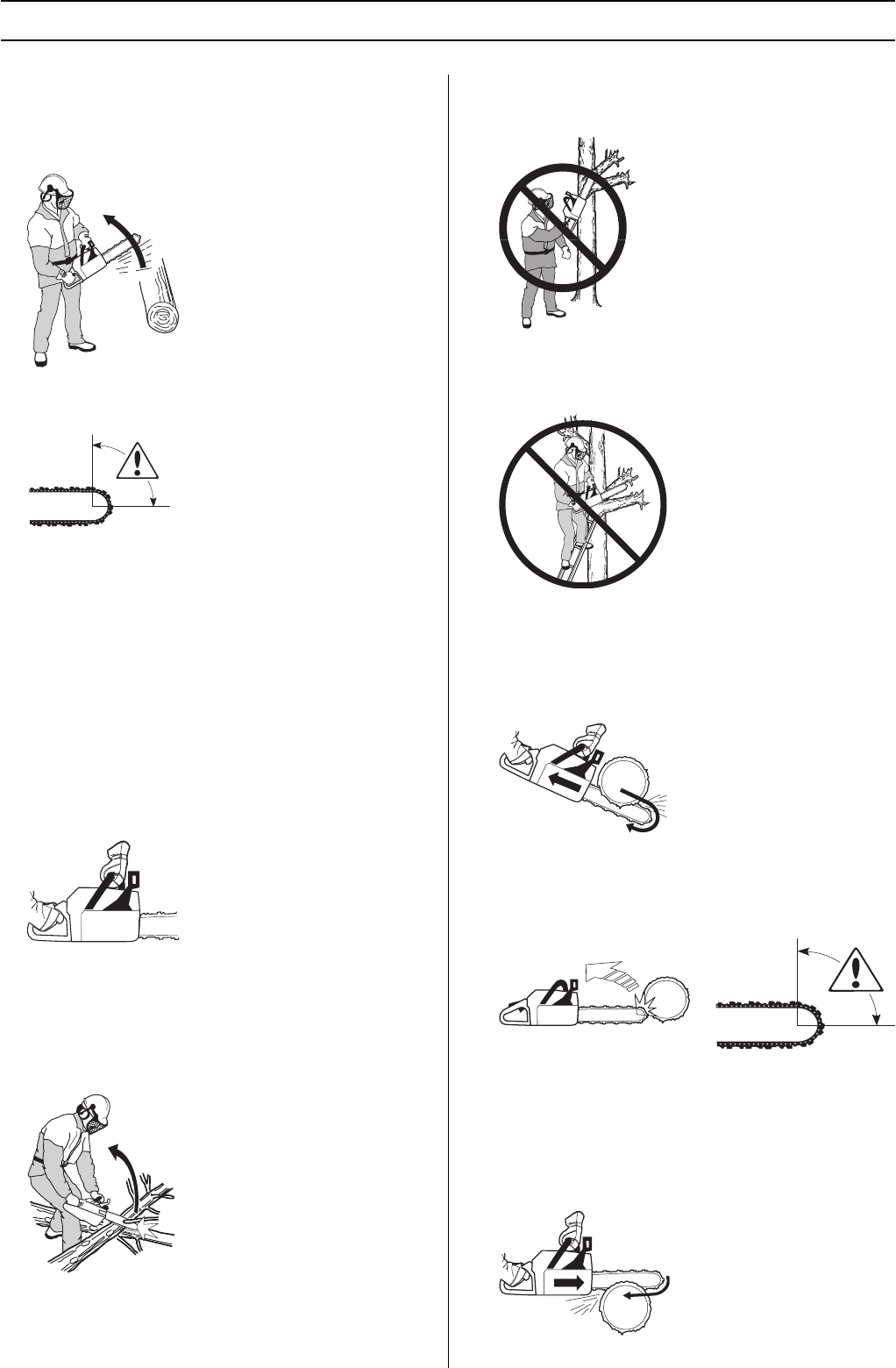
16 – English
SAFETY INSTRUCTIONS
Kickback always occurs in the cutting plane of the bar.
Normally the chain saw and bar are thrown backwards and
upwards towards the user. However, the chain saw may move
in a different direction depending on the way it was being used
when the kickback zone of the bar touched the object.
Kickback only occurs if the kickback zone of the bar touches
an object.
General rules
1 If you understand what kickback is and how it happens
then you can reduce or eliminate the element of surprise.
By being prepared you reduce the risk. Kickback is usually
quite mild, but it can sometimes be very sudden and
violent.
2 Always hold the chain saw firmly with your right hand on
the rear handle and your left hand on the front handle.
Wrap your fingers and thumbs around the handles. You
should use this grip whether you are right-handed or left-
handed. This grip minimises the effect of kickback and lets
you keep the chain saw under control.
Do not let go of the handles!
3 Most kickback accidents happen during limbing. Make
sure you are standing firmly and that there is nothing in
the way that might make you trip or lose your balance.
Lack of concentration can lead to kickback if the kickback
zone of the bar accidentally touches a branch, nearby tree
or some other object.
4 Never use the chain saw above shoulder height and try
not to cut with the tip of the bar. Never use the chain saw
one-handed!
5 In order to keep control of your saw, always maintain a
firm foothold. Never work on a ladder, in a tree or on any
other insecure support.
6 Always use a fast cutting speed, i.e. full throttle.
7 Take great care when you cut with the top edge of the bar,
i.e. when cutting from the underside of the object. This is
known as cutting on the push stroke. The chain tries to
push the chain saw back towards the user.
Unless the user resists this pushing force there is a risk
that the chain saw will move so far backwards that only the
kickback zone of the bar is in contact with the tree, which
will lead to a kickback.
Cutting with the bottom edge of the bar, i.e. from the top
of the object downwards, is known as cutting on the pull
stroke. In this case the chain saw pulls itself towards the
tree and the front edge of the chain saw body rests
naturally on the trunk when cutting. Cutting on the pull
stroke gives the operator better control over the chain saw
and the position of the kickback zone.


















